SUMMARY
This is AI generated summarization, which may have errors. For context, always refer to the full article.
![[OPINION] Lessons on Universal Health Care that I learned from the pandemic](https://www.rappler.com/tachyon/2022/05/universal-health-care-may-7-2022.jpg)
The following is a speech delivered by Dr. John Q. Wong at the Department of Health’s “Looking Back, Marching Forward” event on April 29 at the Conrad Hotel, Pasay City.
Thank you for giving me this opportunity to share my thoughts. Greetings to Secretary Duque and his team at the DOH, to Dr. Kazai and his team at the WHO, and to my colleagues who advised the DOH and the IATF. It’s nice to see all of you in person after two years in the trenches together. The pandemic required a whole-of-society approach, but looking at the people assembled in this room, I see that it also required a lifecourse approach. In this room and among the experts, I see former professors and classmates from UP medical school. I also see former students from Ateneo where I teach.
I was at a former student’s wedding last December 2021 just after the deadly and exhausting Delta surge. A stranger, also a guest at the party, walked up to me and said: “I’ve seen you on TV.” And then she said, “Thank you for your service.” With that she quietly walked away. It was just five words but I consider my service fully paid.
The pandemic has not ended yet but let me offer lessons for UHC that I learned from the pandemic:
- UHC needs to ensure that all Filipinos have a primary care provider. During the pandemic, many Filipinos did not know they were suffering from a comorbidity because they did not have a primary care provider and, therefore, did not qualify for priority vaccination.
- We need to go back to the basics of public health. During the pandemic, mortality from all infectious diseases not called COVID decreased. This was an unexpected but beneficial consequence of the COVID interventions. So, we have to go back to basics. Public health is not just surveillance and statistics; it is also clean air, clean hands, and knowing enough to cover your mouth and nose when you’re sick (or health literacy).
- The schism between medicine and public health or personal services and population services, need to be healed. Health is only possible when both fields are integrated.
- We need to identify where disease is but also where their causes are. Instead of just mapping disease at the barangay level, let’s also map the things that cause ill health: pollution, food deserts, poverty, unemployment, low education, and out-of-pocket health expenditures.
- Multisectoral policy and action need to be enabled by decision-making methods that account for multiple criteria. The IATF brought together multiple government agencies to battle a health crisis whose causes and effects oftentimes lie outside the health system. However, we need better processes for making complex decisions based on multiple, sometimes competing, criteria, values, and preferences.
- Wisdom does not only reside in experts. I present a design challenge: How might we create structures and processes so that:
- People can also be policy advocates?
- People can be co-developers of services?
- People can be more able self-carers and caregivers?
- How do we release the creativity of communities? In the past two years, we have seen community pantries rise to address the problem of lockdown-related hunger. Communities need to be allowed to develop their own solutions while still being consistent with the national vision.
- Filipinos need to regain their trust in government and in each other. Finally, in a global study of factors associated with the reduction of COVID infections, the IHME found that, more than testing, contact tracing, or lockdowns, it was social capital (bonding, bridging, and linking) that had the strongest association with the reduction of infections. Better health outcomes are primarily driven by the trust that people have in their government and in each other.
Today, the DOH celebrates the experts. But there are other people here whose service we also need to be grateful for. So, let me end by quoting from a speech of Teddy Roosevelt, given a little over 112 years to the day at the Sorbonne in Paris, while on his way to Oslo to receive his Nobel Peace Prize. The speech is commonly known as the “Man in the Arena.” I’ll paraphrase it a little to update it for the 21st century.
It is not the critic who counts; not the person who points out how the strong stumble or where the doer of deeds could have done them better. The credit belongs to the one who is actually in the arena, whose face is marred by dust and sweat and blood; who strives valiantly; who errs, who comes short again and again, because there is no effort without error and shortcoming; but who does actually strive to do the deeds; who knows the great enthusiasms, the great devotions; who spends himself or herself in a worthy cause; who at the best knows in the end the triumph of high achievement, and who at the worst, if he or she fails, at least fails while daring greatly, so that his or her place shall never be with those cold and timid souls who neither know victory nor defeat.
At this point, I call on my colleagues, my fellow experts, to stand up and applaud the men and women of the DOH, the men and women in the arena, for their service to the country.
Thank you for listening. – Rappler.com
John Q. Wong, MD, MSc is from EpiMetrics Inc., a public health research institution focused on the achievement of health equity through rigorous and creative conception, execution, translation, and communication of health systems and policy research.
Add a comment
How does this make you feel?



![[ANALYSIS] Hippocrates and hypocrites](https://www.rappler.com/tachyon/2024/07/TL-medical-ethics-june-27-2024.jpg?resize=257%2C257&crop=314px%2C0px%2C720px%2C720px)
![[Free to disagree] Why investigate Bell-Kenz Pharma Inc?](https://www.rappler.com/tachyon/2024/05/TL-why-investigate-punish-bell-kenz-pharma-inc-May-6-2024.jpg?resize=257%2C257&crop_strategy=attention)
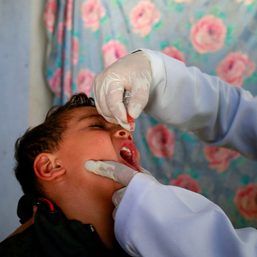
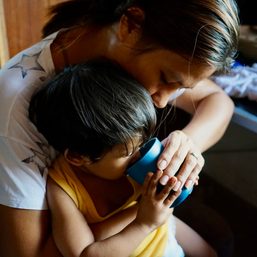
![[OPINION] Beyond infrastructure: Ensuring healthcare access for the poor](https://www.rappler.com/tachyon/2024/03/tl-healthcare-access-03402024.jpg?resize=257%2C257&crop_strategy=attention)
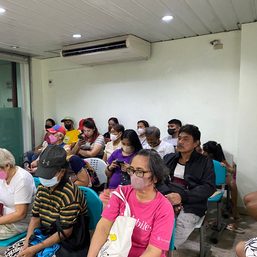
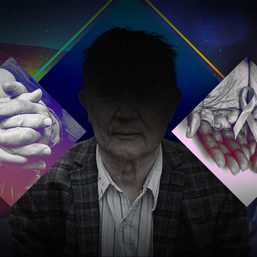
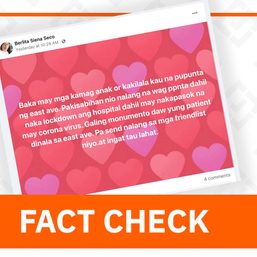

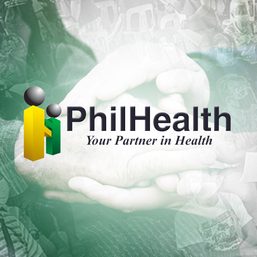
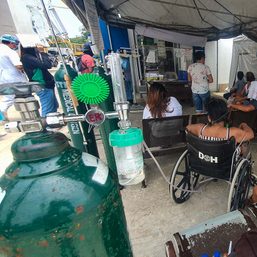
There are no comments yet. Add your comment to start the conversation.